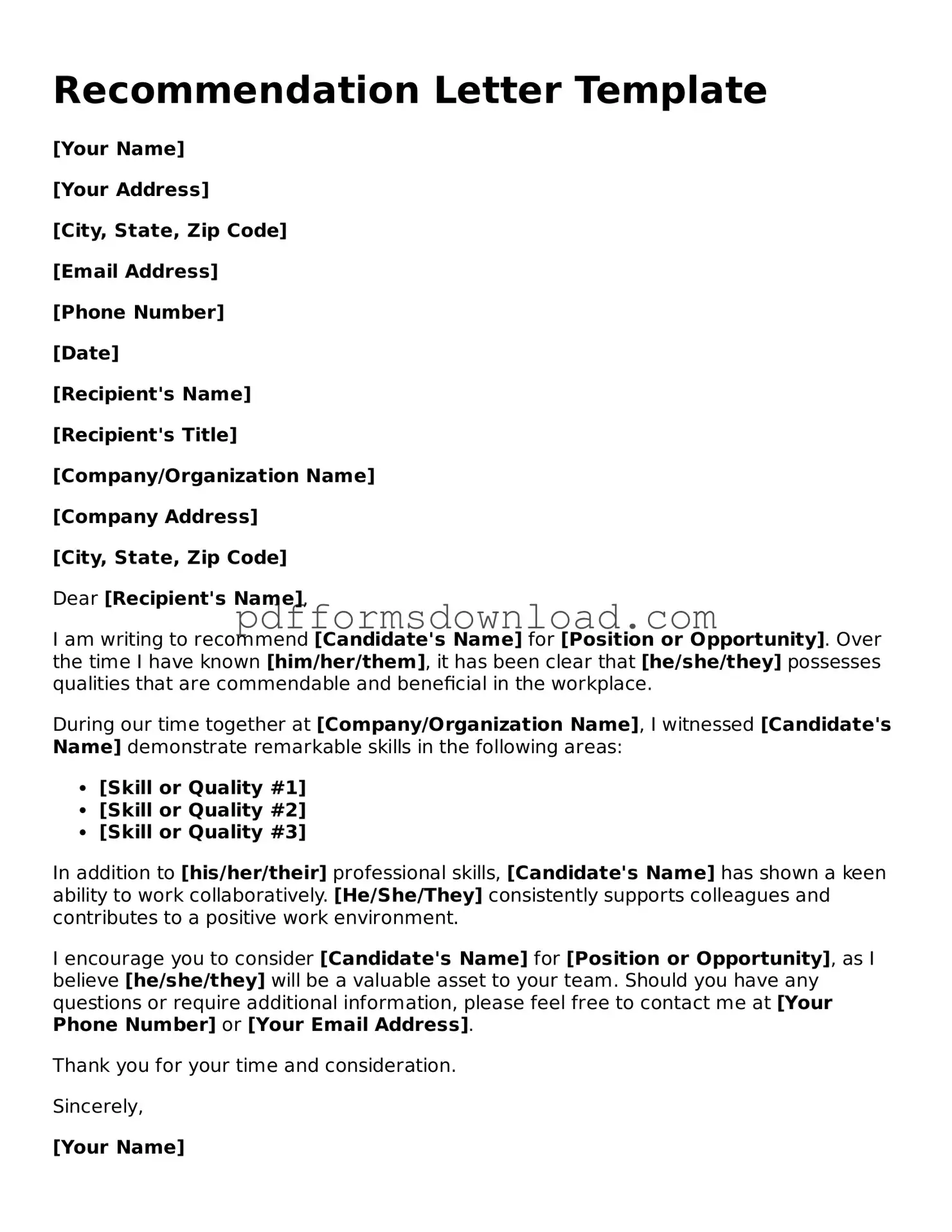What is a Recommendation Letter form?
A Recommendation Letter form is a document used to request a formal letter of recommendation from an individual who can speak to your qualifications, skills, and character. This form typically outlines the purpose of the recommendation and may include specific questions or prompts to guide the writer in providing relevant information.
Who should I ask to write my recommendation letter?
It is best to ask someone who knows you well and can provide a positive and insightful perspective on your abilities. This could be a teacher, employer, mentor, or colleague. Consider individuals who can speak to your strengths and experiences related to the opportunity you are pursuing.
How should I prepare my recommender?
Provide your recommender with information about the position, program, or opportunity for which you need the letter. Share your resume, highlight your achievements, and discuss any specific points you would like them to address. This preparation helps them write a more personalized and impactful recommendation.
What information is typically included in a Recommendation Letter?
A well-crafted recommendation letter usually includes the recommender’s relationship to you, specific examples of your skills and accomplishments, and an overall assessment of your character and potential. It should be tailored to the purpose of the recommendation and highlight your suitability for the opportunity.
How long should the recommendation letter be?
Generally, a recommendation letter should be one page long. This length allows the writer to provide enough detail about your qualifications without overwhelming the reader. A concise, focused letter is often more impactful than a lengthy one.
When should I request my recommendation letter?
It is advisable to request your recommendation letter well in advance of any deadlines. A notice of at least 4 to 6 weeks is ideal, allowing your recommender sufficient time to craft a thoughtful letter. This also demonstrates respect for their time and effort.
Can I see the recommendation letter before it is submitted?
It is courteous to ask your recommender if you can review the letter before it is submitted. However, many recommenders prefer to keep their letters confidential to maintain authenticity. Be sure to discuss this upfront and respect their decision.
What if my recommender declines to write my letter?
If a potential recommender declines your request, do not take it personally. They may feel they cannot provide a strong endorsement due to various reasons. Thank them for their honesty and consider asking someone else who may be more comfortable writing a recommendation on your behalf.
How should I thank my recommender after they submit the letter?
A thoughtful thank-you note or email is a great way to express your gratitude. Acknowledge their time and effort in writing the letter, and let them know the outcome of your application if possible. This gesture fosters goodwill and maintains your relationship for future opportunities.
What should I do if I need to follow up with my recommender?
If you need to follow up, do so politely and respectfully. A gentle reminder a week or two before the deadline is appropriate. Express appreciation for their help and offer to provide any additional information they may need. This keeps communication open and reinforces your gratitude.

